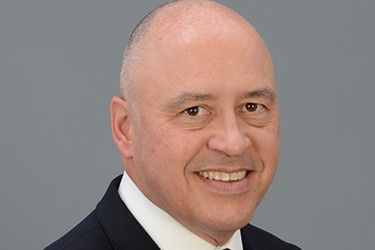Assessing The Impact Of Civica Rx Business Model For Pharma Manufacturers
By Dean Erhardt

Some of the largest providers in the U.S. have officially joined forces to launch a nonprofit generic drug company called Civica Rx. This new business model has drawn significant interest from hospitals and health systems because it specifically addresses shortages of generic sterile injectable products that have become consistently short supplied. This creates complex challenges for patients and hospitals, alike, and can compromise quality patient care when not available in the hospital setting.
The new company plans to market 14 common generic drugs that have either been in short supply or whose prices have had dramatic price spikes in recent years. Company leaders are currently determining how to best structure their offerings as a long-term supply solution. Under consideration are approaches to contract directly with a manufacturer or choose to manufacture products on their own or via a contracted manufacturer partner(s).
Civica Rx has a goal to create a stable, reliable supply by committing to 10-year purchase agreements that a) guarantee members a minimum supply availability, and b) enable the manufacturer partner to have a stable revenue stream with a fair and equitable contracted price that allows for manufacturing certainty.
With 15 founding members that represent more than 120 health organizations or approximately one-third of the nation’s hospitals, Civica Rx is structured as a nonprofit. Day-to-day operations will be handled by industry manufacturer executives, and participants will receive no cash distributions. The team is aligned to enable hospitals to have the consistent availability of products at a predictable price.
The Rationale
Shortages of commonplace generic drugs have burdened hospitals in recent years. With short supplies and fewer suppliers for key drugs, prices continue to rise. This has created a situation that is simply not sustainable for providers.
In fact, the challenge of finding alternative drugs during a drug shortage is time-consuming and negatively impacts patient care. For this reason, Civica Rx will target drugs that are in short supply, appear on lists of essential medications, and have a history of huge price spikes.
Production of some generics has become so concentrated that companies have monopoly power over essential medications. Because manufacturing and development costs are already covered, they can use that power to keep out the competition, lowering prices to drive them out of the picture and then raising prices whenever they think the time is right or when the opportunity presents.
To blunt this type of leverage, Civica Rx will require hospitals to commit to long-term contracts to buy the medications at fixed prices, even if another generic company drops its prices lower. This creates a situation in which the promise of long-term stability outweighs the short-term temptation of “getting a deal.”
Civica Rx comes at a time when drug shortages have become widespread, causing the FDA to create a task force to find solutions. Civica Rx will begin applying to the FDA as soon as early 2019 to make and sell the new generics, and is likely to begin contracting with existing manufacturers to make the medications under its own label. One potential outcome is that the company may buy manufacturing facilities.
Implications and Reactions
While the full impact of the Civica Rx approach remains to be seen, it will depend largely upon which drugs the company decides to produce. For example, if they target expensive drugs for rare diseases, this could prove to be a positive step for the market. But if their approach is more about competing in the current market to lower prices, this could have a negative impact for pharmaceutical manufacturers.
The Association for Accessible Medicines, a trade group for generic drugmakers, said in a statement that it welcomes into the generic drug manufacturing community any entity that shares its commitment to bringing safe, effective and affordable treatment options to patients, providers and payers.
This new model is unlikely to impact generic drugmakers who sell drugs at reasonable prices and produce them in adequate supplies. On the other hand, companies known for price gouging and creating shortages should be worried about this new approach.
Final Thoughts
A shortage of generic drugs reflects a manufacturer’s failure to serve its consumer base. Nevertheless, Civica Rx will face significant challenges. Manufacturing, access to raw materials and quality assurance for pharmaceuticals represent major stumbling blocks.
It’s unlikely that big-name pharmaceutical companies will feel the impact any time soon, but generic drugmakers should be on the alert. With an increase in new competition and disruption, Civica Rx could have a direct impact on patient healthcare costs.
As the lines between traditional players in healthcare continue to blur, this new paradigm represents a significant example of vertical integration and the challenge of existing business models. Now, more than ever, launching pharmaceutical products relies upon expert insights to see opportunities, challenges, and solutions that can be implemented to ensure a successful commercial effort.
Bio:
Dean Erhardt is president and CEO of D2 Consulting.
